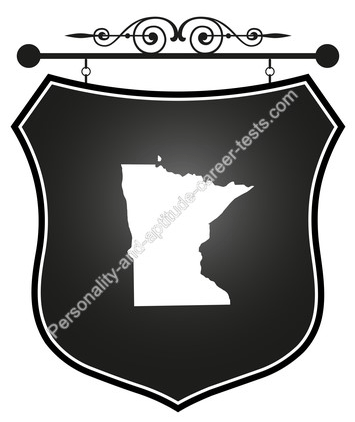Minnesota Personality Test to Diagnose Mental Illness and Lies
The Minnesota Multiphase Personality Inventory, also known as the Minnesota Personality test, is a personality instrument comprised of 567 questions, which takes up to 90 minutes to complete. The test is considered one of the most accurate personality tests that you can take for this reason- it is exceptionally detailed yet realistic. With 567 questions, you would have to expect the best!
Initially developed by Starke Hathaway and J.C. McKinley at the University of Minnesota in the late 1930's, the Minnesota test is one of the oldest personality tests in existence today. However, the test is not without revisions, with revisions occurring in 1989 and 2001. The main purposed for the revisions was that the original test did not include so many questions, and many experts did not believe the original test was as accurate as possible.
The Minnesota test is a measure that is given to diagnose mental illnesses and is designed for patients 18 years of age or older. This Personality test has ten basic scales that are used to diagnose or indicate different mental illness conditions. These 10 scales are:

- Hypochondriacs (physical well being)
- Depression,
- Hysteria,
- Psychopathic deviate (social deviation in any way),
- Masculinity/femininity (originally designed to detect homosexual tendencies, but was not effective at determining or detecting homosexual tendencies),
- Paranoia,
- Psychasthenia (originally used to identify excessive doubts, but this scale is no longer used today),
- Schizophrenia,
- Hypo-mania, and
- Social introversion (withdrawal from social functions).
The last scale, social introversion, was lately added as it was not available in the original test of 1930's.
Free Online Pre-Employment Personality Test
Minnesota Personality Test to Measure Lies
In addition to the primary diagnostic scales, the Minnesota Personality test also attempts to detect if you are lying, or trying to present yourself in a “more favorable light.” Any of the following scales or a combination can be used for the purpose:
- L scale (the lying scale)
- F scale (the faking scale, this means that you are faking good or bad responses)
- K scale (the defensiveness scale)
- TRIN scale (which means that the results are inconsistent, with 23 paired questions that are the opposite of each other)
- VRIN scale (which means that the results are inconsistent, but not related to the 23 paired questions on the TRIN scale)
- Fb scale (which may mean that you grew tired of answering all of the questions on the test), and
- The “?” scale (which is the number of questions that were not answered). If the “?” scale consists of 30 or more questions that were unanswered, the test is recommended to be declared invalid.
Interpretation
Once you complete the Minnesota Personality test, your test results will be processed and interpreted by a psychologist or certified clinical worker. The results do not compare you with a percentile rank (as some tests do), but instead are compared for higher areas of a particular scale, compared to regular averages. For instance, if you scored high on the paranoia scale, but also high on other scales, it may not necessarily mean that you are paranoid- further studying of your responses is required. It is the main secret to the accuracy of the test- you aren't merely graded pass or fail, but your results are also analyzed and patterned to determine troublesome areas.
If you are facing or taking the Minnesota Personality test, the best advice that anyone can give you is to take your time, and answer the questions truthfully. The test can determine if you are lying or embellishing the truth, so be sure to tell the honest truth when taking this test. The test will take approximately 90 minutes, so be sure to eat well beforehand, and to get plenty of sleep.
Practice with Free Personality Tests
Share Your Thoughts!
We find value in differences between learning, interpreting and overall opinions. Please share your thoughts freely about this topic, but always remain respectful. You can preview and edit on the next page before your submission is sent in. You will also be informed about this site's privacy policies. Thank you for your contribution.
What Other Visitors Have Expressed
Click below to see contributions from other visitors to this page...
Relevance Beyond US Cultural Context 




I recently took this test & found a large number of the questions to be so silly that it was very hard to take any of it seriously. In particular, I found …
Recent Articles
-
What type of test did I take
Apr 04, 22 04:09 AM
I was given a psychological test years ago, but wasn’t told what it was for. The rating used a bell curve and my score fell in the above average not yet -
ﹰﹰﹰﹰﹰﹰﹰGOOD
Aug 13, 21 03:20 PM
Since the enneagram test helps people to understand their strength and weaknessess. And helps them remove their weaknesses then the test is good -
Knowing the inner me
Aug 13, 21 03:17 PM
Sometimes I ask myself that is this my behaviour or not? Because I am really shy and I lack confidence, I find it hard to socialize with other people.I
